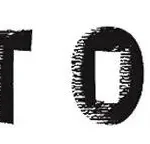Legislative Update #1 – Recent amendments to New Jersey Planned Real Estate Full Disclosure Act (PREDFDA) were adopted and published by the NJ Dept of Community Affairs on May 18, 2020. These amendments were adopted at the start of the pandemic, were not highly publicized and subsequently many community, condominium and homeowners associations are not aware of them.
These changes, more commonly known as the Radburn amendments are intended to ensure greater transparency in condo board actions, to promote the inclusion of condo owners in major decisions that affect their shared common property and to ensure that election and voting for condo board positions is done openly and anonymously. These amendments affect all condominiums in New Jersey.
The most significant features of the new regulations which are relevant to most Associations apply to two areas: Board meetings and election of Board members.
Regarding Board of Trustee meetings/actions: these amendments require that any meeting where a binding vote is taken shall be open to attendance by all unit owners. A vote taken at a closed meeting is not binding. Every elected Board member shall be provided equal opportunity to participate in any board meeting.
The Board must provide a brief explanation including the basis for and the cost entailed in the matter that is subject to vote and include the explanation in the meeting minutes.
Associations must hold an annual meeting and within 7 days thereafter, publish the open Board meeting schedule for the remainder of the year. In addition to the annual schedule of meetings, the Board must also provide notice at least 7 days prior to any board meeting. The notice should follow the format in the association by-laws.
Written meeting minutes must be taken for Board meetings and the minutes (in draft, unapproved form) must be made available to owners prior to the next meeting.
The Radburn amendments also affect the election of board members: the most important change is that all ballots must be cast in an anonymous manner (i.e.; double envelope) and the tallying of ballots must be done in public. The individual ballots are also open to inspection by any association member for 90 days afterwards. Election ballots must list candidates in alphabetical order. Ballots cannot identify incumbent board members running for reelection and ballots shall contain a space for write in candidates for as many seats are up for reelection.
Voting electronically is only allowed if the By Laws permit and the election is administered by a neutral 3rd party. A sample ballot must be provided with the meeting notice in addition to an absentee ballot and a proxy form.
The new laws adopt the definition of ‘member in good standing’ set forth in the Radburn Act (supersedes Association definition). Members not in good standing must be advised of such at least 30 days prior to the election.
There is certain association business that generally should not be discussed in open meetings: litigation or issues that involve the likely potential for litigation; contract negotiations; personal privacy matters; and personnel/employment matters. While staffing standards can be discussed at open meetings, personnel decisions and specific employee matters should never be discussed during open meetings.
Legislative Update #2 – On Nov 8, 2021, Governor Phil Murphy signed Senate Bill No 2861 requiring the removal of discriminatory language prohibited by sections 4 and 12 of the NJ Law Against Discrimination from all deeds recorded on or after Jan 1, 2022. Homeowners and condominium associations must review their governing documents and remove such language. In relevant part, LAD prohibits restrictive covenants in deeds that establish restrictions on the ownership or use of real property on the basis of:
race; creed; color; national origin; ancestry; age; disability; genetic information; marital status; affectional or sexual orientation; domestic partner status; pregnancy; familial status; military service; sex; gender; identity or expression; and source of income for rental or mortgage payments
Although the restrictive covenants of the above are no longer enforceable due to federal and state civil rights legislation, the text of these restrictive covenants remain on many deeds of older community associations. Under this law a deed recorded on or after Jan 1 ,2022 is prohibited from containing a reference to a restrictive covenant that restricts the ownership or use of property prohibited by L.A. D.
The Act requires that within 90 days of its enactment, that the governing boards of condominium or homeowner associations review the association’s governing documents to: a) determine if the governing documents contain any restrictions in violation of the LAD; and b) amend the document to remove the offending language.
Jim Yost owns Elite Management and Advisory Services, LLC and is managing partner for Ocean Property Management Corporation, based in Wildwood. The firms manage numerous community, condominium and homeowner’s associations in southern New Jersey. He can be reached at yostopmc@comcast.net. Past columns are available online at www.oceanpropertymgmt.com.
Karim Kaspar, Esq. is Senior Counsel with Lowenstein Sandler LLP. He serves as general counsel to numerous community and condominium associations throughout New Jersey. He specializes in complex commercial litigation and real estate matters and has been active and instrumental in the firm’s pro-bono activities. He can be reached at kkaspar@lowenstein.com.







